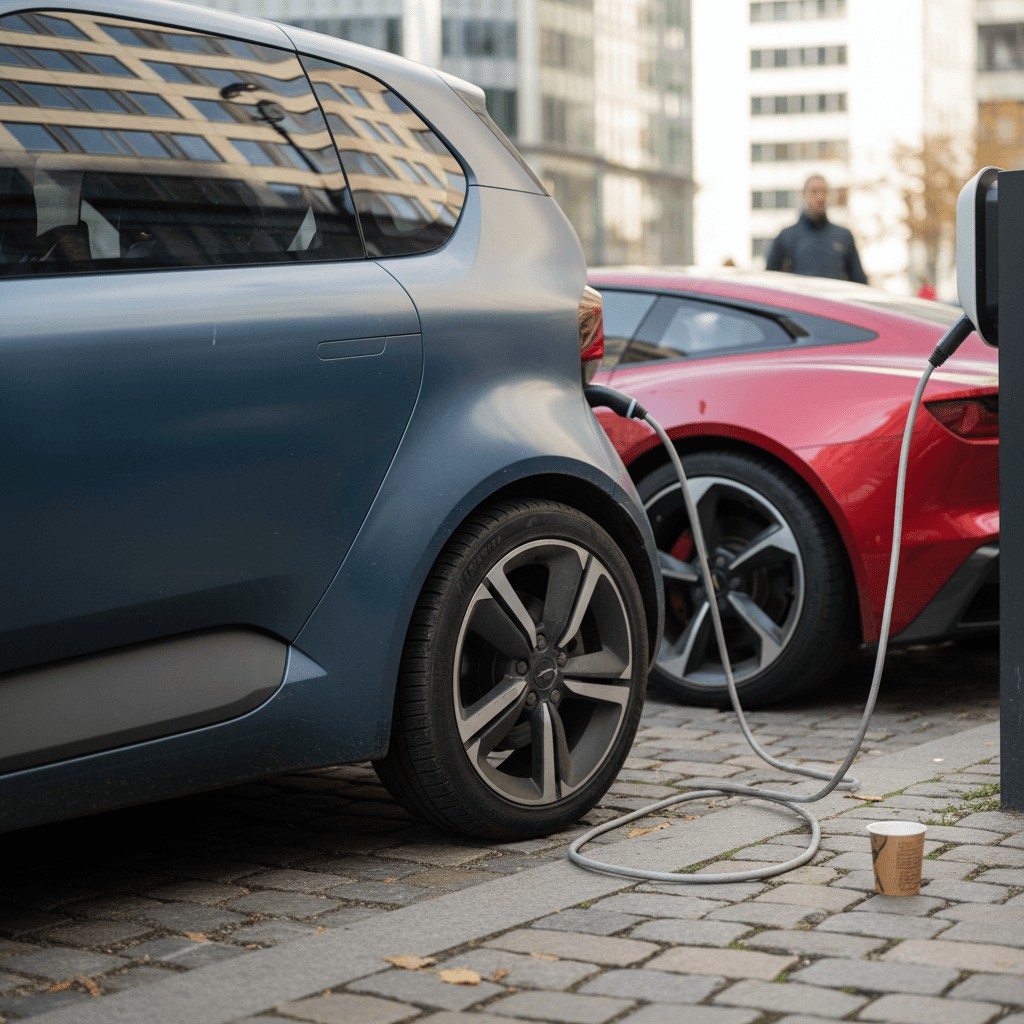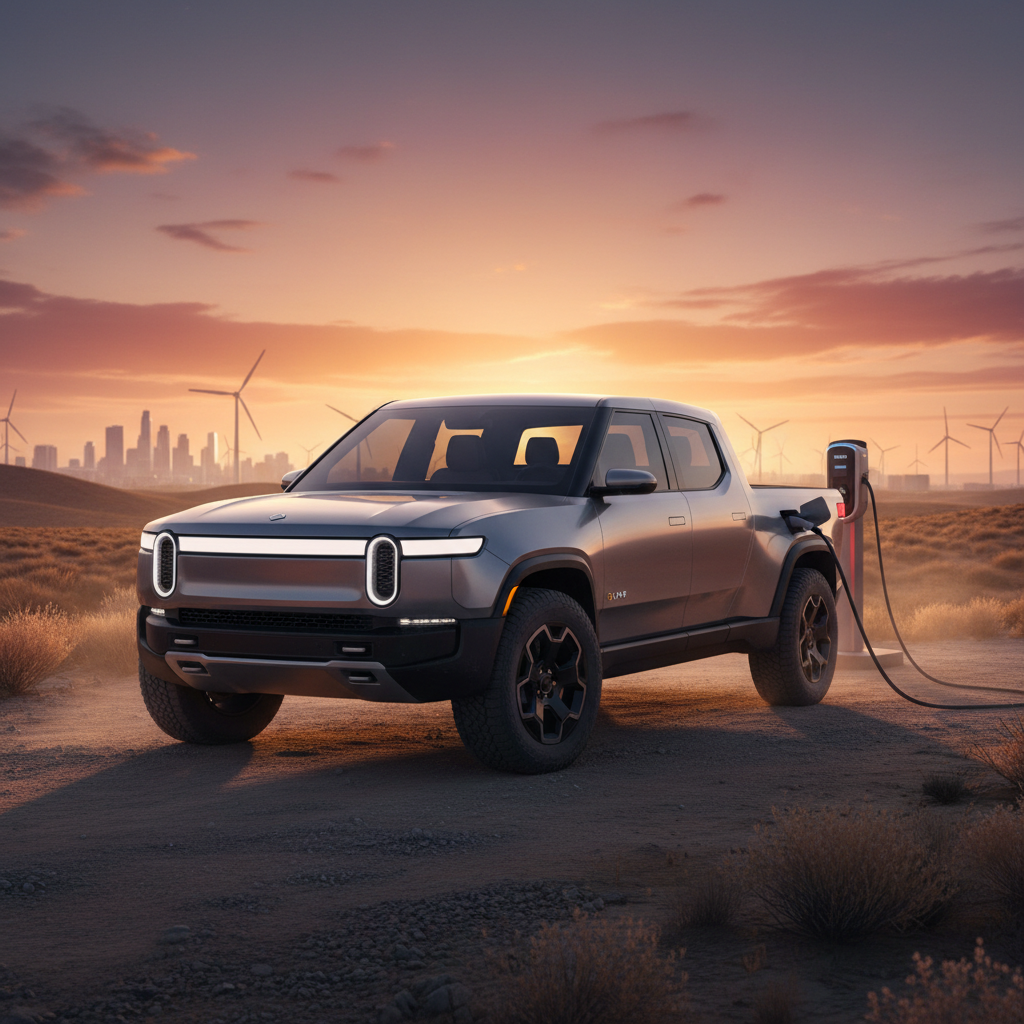If you’re shopping for an affordable EV, a Chevy Bolt used car is going to show up in almost every search filter. It’s one of the few electric cars that can deliver 200+ miles of range, modern tech, and hatchback practicality at a price that often undercuts equivalent gas cars. But between the battery recall, rapidly changing EV incentives, and the upcoming next‑generation Bolt, you want to go in with eyes wide open.
At a glance
Why the Chevy Bolt makes sense as a used car
- Compact footprint that still fits adults and cargo like a small crossover
- EPA range of roughly 238–259 miles depending on year and battery, more than enough for daily use
- Low running costs thanks to simple EV drivetrains and minimal maintenance
- Large number of 2017–2022 cars on the road, so used inventory is strong
- Battery recall campaigns that often swapped in higher‑range packs and reset warranties
When the Bolt EV launched for the 2017 model year, it effectively proved that a long‑range EV didn’t have to be a luxury car. On the used market, that value proposition only gets stronger: the steep early depreciation is already baked in, while the hardware, especially on recall‑repaired cars, can feel surprisingly new. For many city and suburban drivers, a used Bolt covers 95% of real‑world use cases without the cost or complexity of a big battery SUV.

Chevy Bolt EV vs. Bolt EUV as used cars
There are really two versions to consider as a Chevy Bolt used car: the original Bolt EV hatchback (2017–2023) and the slightly larger Bolt EUV (2022–2023). They share most of the drivetrain and battery technology but target slightly different needs.
Bolt EV vs. Bolt EUV: key differences for used buyers
Both are efficient; pick based on space, comfort, and features.
Bolt EV (2017–2023)
Best for: City driving, tight parking, budget shoppers.
- Shorter overall length, easier to park
- Slightly lighter and a bit more efficient
- Earlier model years (2017–2019) now among the cheapest EVs you can buy used
Bolt EUV (2022–2023)
Best for: Families, rideshare, longer commutes.
- More rear legroom and slightly more upright seating
- Available GM Super Cruise on higher trims
- Generally a few thousand dollars more than comparable Bolt EVs
Space vs. price trade‑off
Used Chevy Bolt prices in 2025
Typical used Chevy Bolt EV pricing (U.S., late 2025)
Market trackers show an average used Chevy Bolt EV price in the mid‑$15,000s nationally, with newer model years averaging higher. In other words, a Bolt is often 40% or more cheaper than the average used car, despite giving you modern tech and low running costs. Local supply, mileage, and whether the battery recall has been completed can move the needle by several thousand dollars either direction.
Illustrative used Chevy Bolt price bands
Approximate retail asking prices as of late 2025. Exact values depend on mileage, condition, geography, trim, and incentives.
| Model year | Body style | Typical mileage range | Approx. dealer asking price |
|---|---|---|---|
| 2017–2018 | Bolt EV | 70k–120k miles | $11,000–$14,000 |
| 2019–2020 | Bolt EV | 50k–90k miles | $14,000–$18,000 |
| 2021 | Bolt EV (refresh) | 30k–70k miles | $16,000–$20,000 |
| 2022–2023 | Bolt EV (refresh) | 15k–50k miles | $18,000–$22,000 |
| 2022–2023 | Bolt EUV | 15k–50k miles | $20,000–$25,000+ |
Use these ranges as a starting point, then layer in battery condition, options, and local supply.
Don’t over‑index on year alone
Battery recall, replacements, and warranty coverage
You can’t talk about a Chevy Bolt used car without talking about the high‑profile battery recall. In 2020–2021, GM recalled essentially every 2017–2022 Bolt EV and EUV due to rare manufacturing defects that could cause fires. Many cars received full battery pack replacements, and the story today is far more positive than the headlines from a few years ago.
- Most early Bolts (2017–2019) have already had their packs replaced with newer, higher‑range units.
- Replacement packs typically deliver around 259 miles of EPA range, the same as later non‑recalled cars.
- Crucially, the high‑voltage battery warranty on recall replacements usually resets to 8 years/100,000+ miles from the replacement date (check paperwork for specifics).
- A significant share of 2020–2021 cars have also been repaired, but some are still in the queue, especially lower‑mileage garage queens.
Why the recall can be a good thing for buyers
A large majority of early‑year Bolts in owner communities now show recall battery replacements, with many drivers reporting higher range after the swap and minimal degradation even after tens of thousands of miles.
When you’re evaluating a specific car, your goals are simple: confirm that the recall work has been completed, see when the new pack was installed, and understand how much warranty remains. A good dealer, or a platform like Recharged that specializes in used EVs, should be able to provide documentation, not just verbal assurances.
Range, charging, and real‑world ownership
On paper, the Bolt’s range numbers look strong; in real life, they’re one of the reasons the car works so well as a used EV. Depending on model year and battery, you’re looking at roughly 238–259 miles of EPA‑rated range for the Bolt EV, with the EUV a hair lower due to its size. For commuters driving 30–60 miles a day, that means you’ll rarely arrive home with less than half a battery.
Charging speeds
- AC charging: Up to 7.2 kW (32 amps) on most Bolts, roughly 25–35 miles of range per hour on a Level 2 home charger.
- DC fast charging: Peaks around 50–55 kW on older cars and a bit higher on later ones, best for adding 80–100 miles on a road‑trip stop rather than constant fast‑charge use.
The Bolt isn’t a road‑trip monster, but it’s more than capable for regional travel if you’re patient and plan around CCS fast‑charging networks.
Real‑world factors
- Cold weather and high speeds can eat 20–30% of rated range.
- Heater use is the biggest hit in winter; preconditioning while plugged in helps.
- Gentle driving and moderate speeds often let owners beat the EPA rating in mild weather.
Focus on how much range you need on your worst day, winter commute plus errands, and make sure the specific car you’re considering can comfortably cover it.
Think about your daily rhythm, not just the EPA number
How to check battery health on a used Bolt
Because the battery pack is the single most expensive component on any EV, you should treat it like you would a compression test on a used engine. The good news: Bolts with recall packs and normal use are generally holding up well, and you have multiple ways to evaluate battery health before you commit.
Battery health checklist for a Chevy Bolt used car
1. Confirm recall completion and pack replacement date
Ask for service records showing the recall campaign and battery serial number. Note the installation date, it often starts a new 8‑year battery warranty clock.
2. Check remaining battery warranty
Verify the in‑service date and mileage limits for the high‑voltage warranty. A 2018 Bolt that received a recall pack in 2023 can have coverage well into the 2030s.
3. Look at range at high state of charge
On a test drive, fully charge or get close, then see what the guess‑o‑meter projects at 90–100% based on recent driving. Compare it to the original EPA rating, but remember driving style and conditions matter.
4. Scan for error messages or reduced‑power warnings
Make sure there are no battery‑related fault lights, power‑reduced messages, or unusual behavior when accelerating or charging.
5. Ask for a third‑party or platform‑provided battery report
Tools like the <strong>Recharged Score</strong> use diagnostics and pack telemetry to give you an objective view of battery health instead of relying on gut feel or seller claims.
6. Review charging history if available
A car that’s lived on Level 2 home charging with occasional fast‑charge stops is ideal. Heavy DC fast‑charge use isn’t necessarily a deal‑breaker but deserves a closer look at capacity and warranty.

Common issues and what to inspect
Overall, the Bolt has proven to be mechanically simple and robust once you get past the battery recall. Most owner‑reported problems are familiar small‑car issues rather than exotic EV failures, but there are a few patterns worth checking for when you inspect a Chevy Bolt used car.
- Battery recall status: The big one. Confirm completion, replacement date, and warranty in writing.
- DC fast‑charging reliability: A small number of owners report occasional charge‑station handshake issues. Test a fast charge if you can, especially if you road‑trip a lot.
- Interior wear: Early cars in particular had some complaints about seat comfort; check for sagging foam or worn bolsters if you plan to drive long distances.
- Infotainment glitches: As with most cars of this era, occasional software quirks happen. Make sure the latest updates have been applied and the system behaves normally on your test drive.
- 12‑volt battery replacement: The small lead‑acid 12V battery usually lasts 4–7 years. On an older Bolt, a proactive replacement is cheap insurance against random warnings and no‑start situations.
Walk away from cars with incomplete recall work
Which Chevy Bolt years and trims to target
There isn’t a single “best” model year, but different slices of the used market hit different budgets and priorities. Your sweet spot will depend on how much you want to spend and how long you plan to keep the car.
Smart used Chevy Bolt targets by buyer type
Match the model year to your budget and time horizon.
Budget‑maximizer
Target: 2017–2018 Bolt EV LT with recall battery.
- Lowest purchase price, often just into five figures.
- Look for documented new pack and plenty of warranty remaining.
- Great for shorter commutes or as a second car.
Value & warranty balance
Target: 2019–2021 Bolt EV, or early Bolt EUV.
- Refined tuning and slightly updated features.
- More remaining factory warranty.
- Still much cheaper than new compact crossovers.
Long‑term keeper
Target: 2022–2023 Bolt EV or EUV with low miles.
- Newest interior and safety tech.
- Maximize years of coverage if you plan to drive it into the 2030s.
- Best pick if this will be your primary car.
What about the next‑gen Bolt?
How Recharged simplifies buying a used Bolt
The tricky part of buying any Chevy Bolt used car isn’t finding one, they’re everywhere. It’s separating the legitimately great deals from the cars with fuzzy histories, incomplete recall work, or unknown battery health. That’s exactly the pain point Recharged was built to solve.
Verified battery health with the Recharged Score
Every EV listed on Recharged comes with a Recharged Score Report that includes verified battery diagnostics, charging behavior, and real‑world range estimates. Instead of guessing based on a range display, you see objective data on how the pack is performing today.
Because the Bolt recall created so much variation, old packs, new packs, mixed usage patterns, this kind of transparency is especially valuable. You’ll know whether you’re looking at a lightly used new‑pack car or a high‑mileage commuter that’s lived on DC fast charging.
A simpler, EV‑first buying experience
- Fair market pricing based on real transaction data, not just list prices.
- Flexible financing and the ability to trade in your current car or get an instant offer.
- Nationwide delivery and a fully digital buying experience if you don’t live near an EV‑dense metro.
- Access to EV specialists who can walk you through range, charging setup, and Bolt‑specific questions.
If you prefer to see and feel a car first, Recharged also operates an Experience Center in Richmond, VA, where you can compare different EVs side‑by‑side.
Frequently asked questions about Chevy Bolt used cars
Chevy Bolt used car FAQ
Bottom line: is a used Chevy Bolt right for you?
If you want a practical, reasonably fun EV that doesn’t torpedo your budget, a Chevy Bolt used car deserves to be on your shortlist. The combination of accessible pricing, real‑world range, and widespread recall battery replacements make it one of the sharpest value plays in the EV market, especially if you prioritize data‑backed battery health and clear documentation.
The homework you do up front, verifying recall status, understanding remaining warranty, and reviewing a proper battery health report, will determine whether your Bolt ownership experience feels like you bought a discounted new EV or inherited someone else’s experiment. Working with an EV‑focused platform like Recharged can offload much of that complexity by pairing every listing with a Recharged Score Report, fair market pricing, and EV‑savvy support from first search to delivery. If that sounds like the kind of help you want for your first (or next) EV, the Bolt is exactly the kind of car Recharged was built around.


